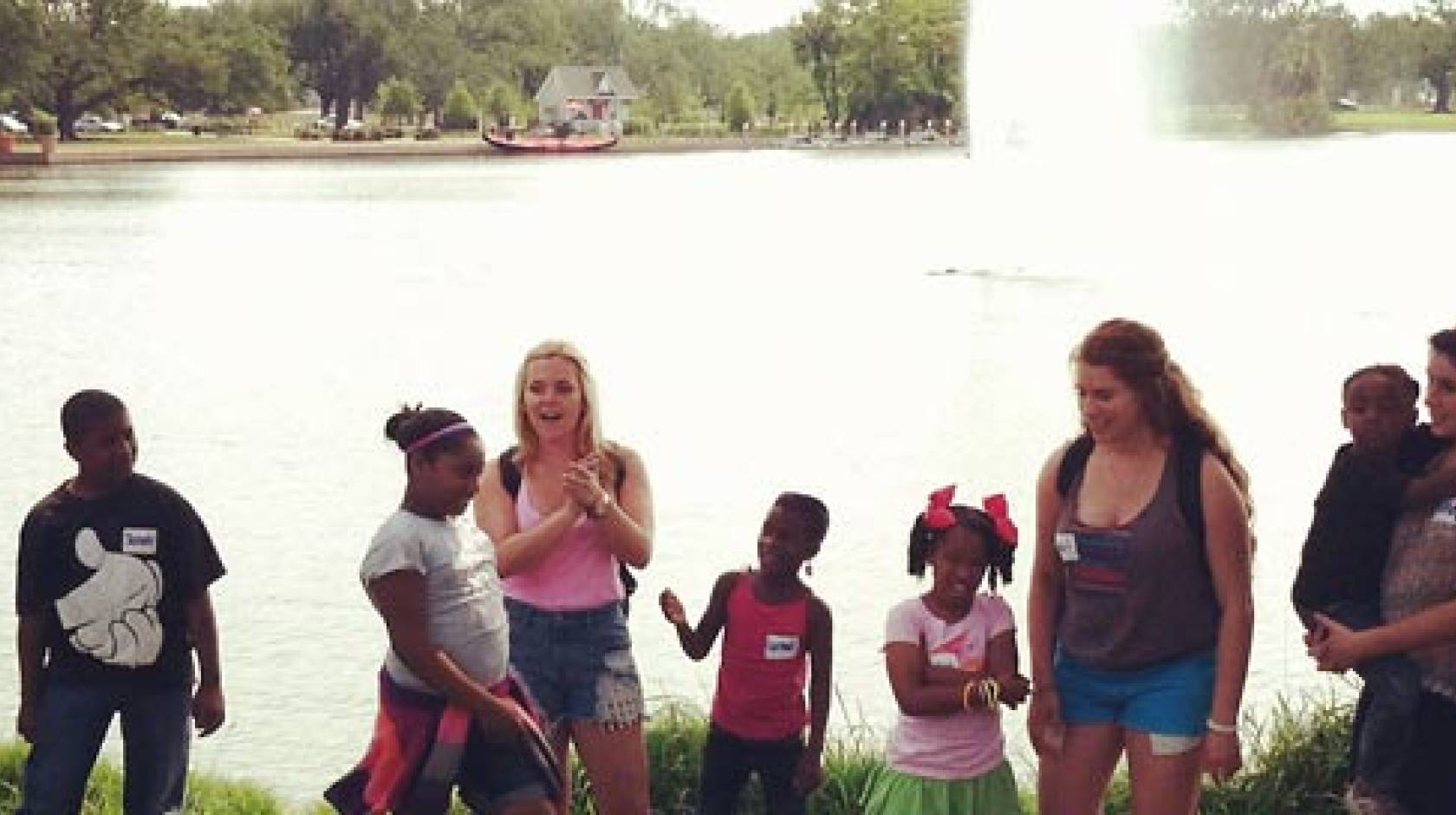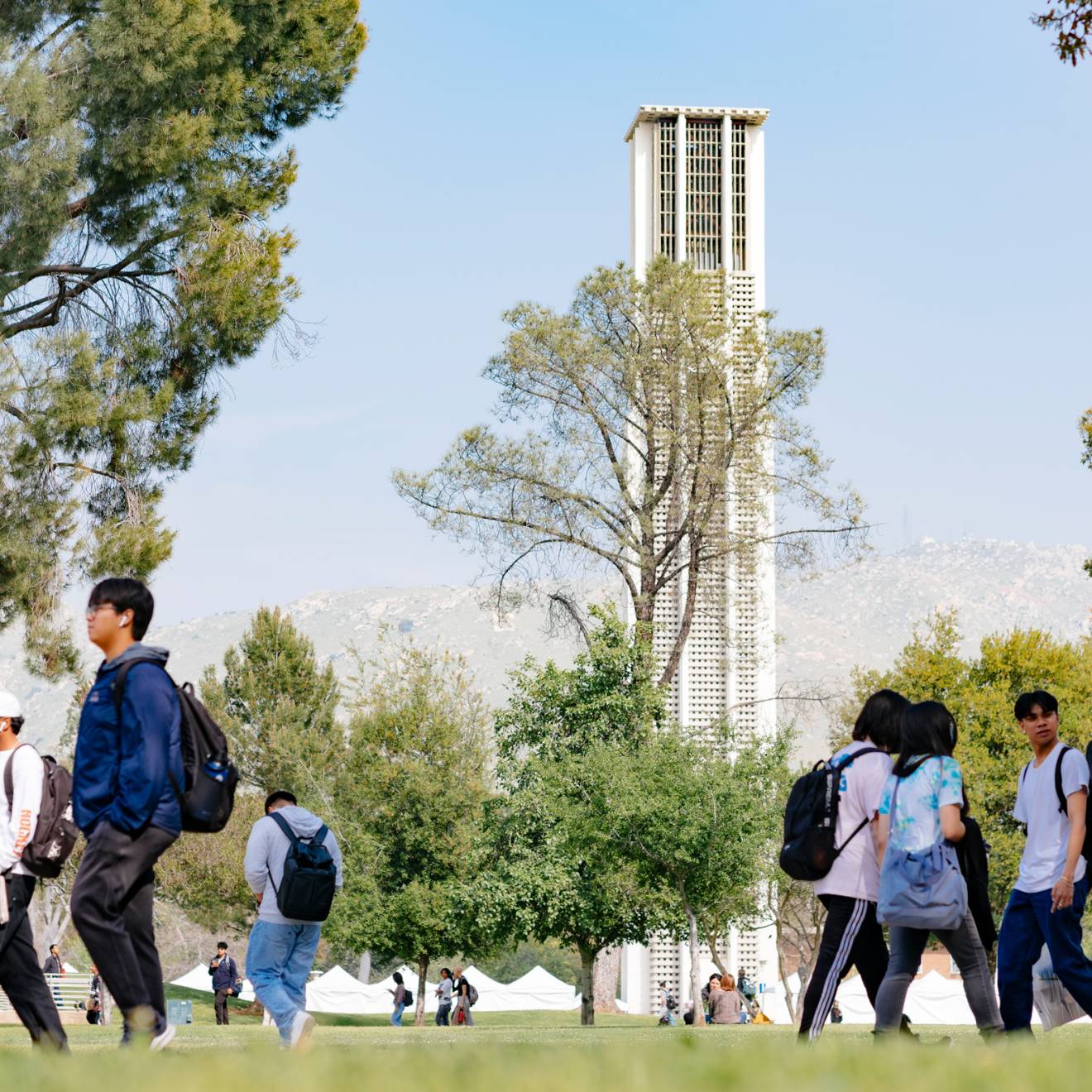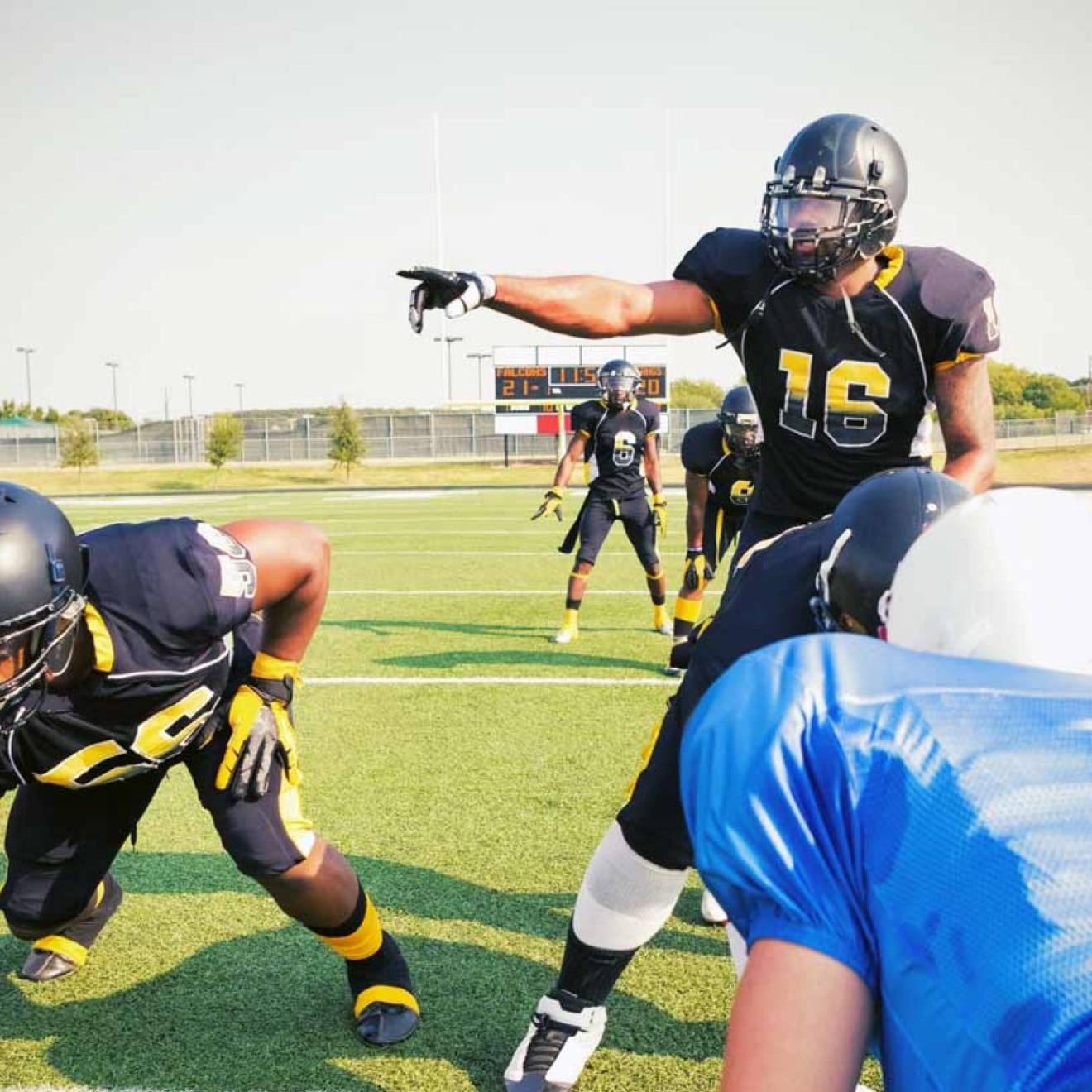Cathy Cockrell, UC Berkeley

For 35 children from New Orleans’ Lower Ninth Ward, the Memorial Day weekend was packed with new and sometimes thrilling experiences — like picking veggies and riding horses on a working farm, making healthy snacks, doing a blindfold taste test of popular cereals, visiting a major museum and creating sections for a “vision” quilt.
The occasion was a three-day camp organized by UC Berkeley students’ Magnolia Project, in partnership with a local community organization, the Lower Ninth Ward Village (LNWV).
“These kids don’t have support from mainstream institutions,” Stephanie Ullrich, one of the camp’s student directors, says of the kids, ages 4 to 13, who turned out for the Magnolia Project’s first summer camp. “Giving them a place to be, even for a couple days, is a huge thing.” LNWV director Ward McClendon echoed the sentiment, saying that investments in youth, through projects like the camp, is what the community needs at this time.
Berkeley students, working in collaboration with the Cal Corps Public Service Center, launched the Magnolia Project six years ago, in the aftermath of Hurricane Katrina. Over time “the needs in New Orleans have shifted,” notes Ulllrich, and the service project, in response, is changing its emphasis from Katrina-recovery work to a longer-term social-justice agenda. Kids seemed like a natural focus.
“We have to empower the children in New Orleans, so they can be confident enough to lead other children in the right direction,” American Studies major Kiyanna Grimes, a 2012 Magnolia Project co-director, wrote in the project’s newsletter. “The skills are there in the rich culture of New Orleans — we just want to show children how intelligent, useful and powerful they are in their community.”
It was Grimes who proposed the kids’ camp, while taking a Peace and Conflict Studies leadership course taught by lecturer Americ Azevedo and Cal Corps staff. Grimes’ proposal won a $3,000 mini-grant from the campus’s new Shinnyo-en Peacebuilding Leadership Program, funded by the Shinnyo-en Foundation.
With funds in place to make the camp a reality, Magnolia Project volunteers spent much of the spring planning camp activities.
Grimes — for whom there’s “no better place in the world” than the Big Easy — notes that the power of culture “is so evident in New Orleans that not even the storm could erase it. The smiles and the children are what bring me back to the city,” with the Magnolia Project, “year after year.”

